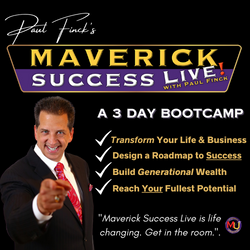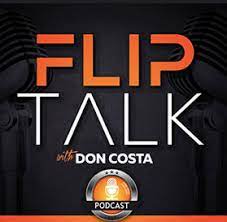Using Skip Tracing as a Real Estate Investor
By Joe Arias
As a real estate investor, especially a wholesale real estate investor, distress or abandoned properties are often the best homes to find under market value. Many of these homes, though, have owners who skipped town and are now just about impossible to find. Luckily, there’s a method for finding these homeowners called skip tracing. You can easily track down someone who has skipped town with no forwarding information through skip tracing as a real estate investor. Skip tracing will allow you to find the homeowner and move forward with a deal to purchase the property you’re after.
Quite a lot goes into skip tracing that you wouldn’t normally expect from real estate investors. You may have to do a little bit of digging to find the homeowner of the property you are looking to buy. Luckily there are tons of tools you can use to find someone who left absolutely zero breadcrumbs. Not only can you utilize search engines, but tons of websites have databases you can look through to find your person.
article continues after advertisement

What is Skip Tracing?
Essentially, skip tracing is the process of finding someone who has skipped town with little to no warning. They did not tell anyone where they were going and left no information on how to reach them. Despite this person leaving no trail, skip tracing is the process of searching for them or their contact information. To do this, one might hire a professional skip tracer or use their own savvy to try and locate them. There are quite a few tricks you can do on your own to find out where a person has gone even though they have not left any information. Many people utilize Google, social media, the post office, and other assets to find someone. This is considered skip tracing.
What are Skip Tracers?
There are professionals who are often private investigators, and they specialize in helping you find the owners of the properties who are incredibly hard to find. Many real estate investors hire the help of skip tracers to find the owners of properties they are interested in buying. These skip tracers typically start looking for a person by looking through public resources like utility bills, job applications, credit reports, DMV records, public property records, loan applications, background checks, and court records. They also carry out in-depth searches through multiple online databases that contain information not available to the public.

Although skip tracing costs money, it can be a huge benefit to any new or experienced real estate investor. Not many other real estate investors take the time or spend the money to hire skip tracers to find abandoned property owners. So, if there is a property owner who is extremely hard to find, you’re likely going to get to them first and have a better shot at buying the property. With competition for standard properties being high, using the method of skip tracing to beat competitors to vacant properties can be a massive advantage as you look to increase your portfolio and really start growing your wealth.
Why Do Investors Use Skip Tracing for Real Estate
As previously mentioned, abandoned homes can be really great for investors. The two investors who likely have the most interest in these homes are real estate wholesalers and real estate flippers. A wholesaler will offer the homebuyer an agreed-upon amount for the home, then they will find an interested buyer, likely another real estate investor, and connect the two. They will then make a profit based on a percentage of the final sale. While wholesalers are always on the lookout for houses that are under market value, it can be hard to get them against so much competition. When someone disappears and is hard to find, they significantly cut down the competition. Now, all the wholesaler has to do is find the homeowner and convince them to sell, and they have a profitable venture. Similarly, flippers are looking to buy homes like these because they have great potential to be repaired and sold for a large profit margin. Since all of the real estate flippers are after the same homes, finding properties like these can actually be a big break for some investors.
Is Skip Tracing Legal?

If you go through a professional skip tracer, the process is legal. Most states require skip tracers to be employed as independent private investigators who have a license with skip tracing certification options. States also have laws that dictate how you can use the information you got from skip tracing, which your skip tracer should expand upon based on your state. Make sure to only ever use a skip tracer who operates under all rules and regulations.
How to Use Skip Tracing for Real Estate
Skip tracing can actually be a very easy yet effective strategy to find property owners who have properties that are under market value. Essentially, you want to be able to find an alternate address for vacant property owners who are hard to find. From there, you’ll be able to contact them and see if they are willing to make a deal with you. Most people who have abandoned their properties are willing to accept fairly reasonable offers.
The hard part is that these property owners rarely leave details behind of their new address and contact information, so it’s almost impossible to find them once they’ve left. That’s why so many real estate investors either try their own hand in skip tracing or hire a professional.

One trick that many real estate investors try is using the United States Postal Service to get the property owner’s new address. What you do not want to do is walk into the post office and ask for their information. The post office is not obligated to provide you with their forwarding address. They are only allowed to give that information to law enforcement, licensed private investigators, or any other entity under court orders. So how do you get around this? All you have to do is send a letter addressed to the property owner at the address you wish to buy. Mail them a letter and on it, write “Do Not Forward – Return Service Requested.” Now that you wrote this, the post office will not be able to forward your letter to their new address and will have to return it to you. If they set up mail forwarding, you’re in luck! The letter will come back with a sticker on it detailing their new address. If it comes back with no address, that’s when you will have to look into skip tracing to find them.
article continues after advertisement

What to Try Before Hiring a Skip Tracer
If the post office trick didn’t work, your next step should be to use all of your resources before hiring and paying for a skip tracing service. Depending on what you need from the person, you may be able to do your own version of skip tracing and get what you need. For just an address or phone number, the internet may be your best tool.
Often information about someone can be found through a Google search, social media, or through the county assessor’s database. Many people even have their phone numbers linked to their Facebook profile without even knowing it. If they are the owner of a page or group, go into the info section and see if it has a contact email or phone number. Using social media, you may be able to look through their photos or connections’ photos and find out their new location. From there, do a Google search for their name and location and see if you can get an address or phone number. You may even be able to find them through a people search or a phone directory.

The following are a list of sites you can try to track down the property owner:
- FindPeopleSearch.com
- Pipl.com
- TruePeopleSearch.com
- PeopleSmart.com
- PeekYou.com
- YellowPages.com
- AnyWho.com
- TLO
- Spokeo
- Accurint
If you call a number and it’s not them, see if they have any connection to the person you’re looking for. You never know; sometimes, a dead end is just a redirection.
Hiring Skip Tracing for Real Estate Investments
Once you have exhausted your search to find the new address or phone number of the property owner on your own, you will have to look into skip tracing services.

Luckily there are plenty of skip tracing services to choose from. Speak with some of your real estate connections and see if anyone has had a good experience with a specific skip tracer. If you are unable to find a referral, do your own research. Read the reviews and make sure they look legitimate. Do not, no matter the price, hire a skip tracer who does not act ethically. It doesn’t matter how great the potential property investment is. It’s not worth breaking the law or involving yourself in sketchy practices.
Generally, skip tracing is not a very expensive service. Using a licensed investigator with skip tracing certification will only cost you around $25 per hour for their services. You could hire an unlicensed skip tracer for around $18 per hour, but it’s not worth the risk over such a small price difference.
What to Do If You Don’t Find the Owner
If you’ve exhausted all of your resources and you cannot find the owner of the property that you want to buy, just put this effort on pause. Move on to other projects and start looking for other properties that you find to be good investments. Add this property and any evidence you found into a spreadsheet where you can keep all skip tracing leads. After a few months, revisit your sheet and do a quick search on a few of the tools provided in this article. While there may not have been any information on the homeowner a few months ago, they may have down something to now appear in a search. Continue to do this every few months until either the property is sold, too run down, or you’ve moved on to different business ventures.
Summary
Skip tracing real estate is not for everyone. If you are a real estate investor looking to get into property management, you likely do not need to waste your time tracking down owners of abandoned homes. On the other hand, if you are someone who is just starting out in real estate, this might be a good thing to try. It could get you a step ahead of your competition, and you may be able to strike a really good deal with the homeowner, as they will likely be motivated to buy. If you are in the business of wholesaling or flipping homes, skip tracing is also something you may want to consider for your business. While it’s a lot more effort than other methods, it has a potentially great payoff if you succeed.


Joe Arias and his partners have flipped hundreds of properties in the Southern California Region. He has developed cutting-edge systems to simplify and scale the entire remodel process that can easily be applied to flipping, rentals, wholesaling, and other passive income strategies. More recently, Joe founded a real estate investing education company called RealSuccess Investments, allowing him to share his tools and systems with hundreds of up-and-coming investors.
RealSuccess is focused on education on flipping, rentals, passive income, and wholesaling.
Joe is also a best-selling author. He has written 4 books: Finding your RealSuccess, First Steps to Flipping, R stands for Rentals and Retirement, and Wholesaling Real Estate.
“I came from Argentina when I was 20, I am 40 years old now. I didn’t know anyone, I am CERO generation, usually people say, I am first or second generation but I was the one that crossed the border, no language, no friends, no family, no money, nothing, nada… If I can do it, anyone can.”
From a young latino immigrant to a celebrated real estate investor, Joe is a true testament to hard work and discipline. As an investor, he has made it his mission to help others achieve financial freedom while enjoying living a life of passion, fulfillment, and empowerment.
RealSuccess Website
Personal Instagram:
https://www.instagram.com/joeariasinvestor/
Real Estate Investment- Instagram:
Instagram: https://www.instagram.com/realsuccesseducation/
Video For Finding Money from All Day Training (10 Hour Seminar)
https://vimeo.com/manage/videos/528446162
1 Hour Webinar
https://vimeo.com/manage/videos/530996751
Amazon Book#1:
Amazon Book#2
Learn live and in real-time with Realty411. Be sure to register for our next virtual and in-person events. For all the details, please visit Realty411Expo.com or our Eventbrite landing page, CLICK HERE.




























































